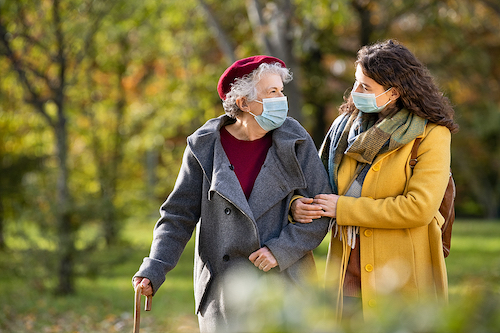January 31, 2022
by Elizabeth Pratt

Botulinum toxin is a medicine that is often used for wrinkles, to help ease migraines, for muscle spasms, and to assist with incontinence.
Now research published in Scientific Reports has found that people who had botox injections across four different areas of the body reported less anxiety than their peers.
[More]
January 26, 2022
by Elizabeth Pratt

For the first time since nation-wide data has been recorded, stigma towards those with depression has dropped significantly.
A study from Indiana University found that stigma associated with depression has dropped to a record low, but stigma surrounding other mental illnesses has either remained the same, or increased.
[More]
January 11, 2022
by Patricia Tomasi

A new study published in JAMA Network looked at trends in public stigma of mental illness in the United States. “The National Stigma Studies are designed to monitor the cultural climate surrounding mental illness and addiction,” study author Bernice A. Pescosolido told us. “This involves not only what people understand, what they can recognize as a problem, what they might do about it (or advise others to do), but also the prejudice and potential discrimination that individuals, families and certain groups face if they have mental health issues.”
[More]
December 16, 2021
by Elizabeth Pratt

Despite global upheaval during the COVID-19 pandemic, suicide rates in the United States fell during 2020.
The downward trend in suicide rates mirrors what occurred in the Spanish Flu pandemic in 1918-1920. But researchers are warning that challenges still remain in addressing the impacts of COVID-19 among disadvantaged communities.
[More]
December 15, 2021
by Elizabeth Pratt

Smartphone and computer-based treatments are effective at reducing symptoms of depression.
Research published in the Psychological Bulletin found that digital interventions could be effectively used as a treatment for depression for a variety of groups with different levels of depression.
[More]
October 26, 2021
by Patricia Tomasi

A new study published in the Journal of Behavioural Brain Research looked at how chronic vicarious social defeat stress (cVSDS) attenuates newborn neuronal cell survival in a mouse hippocampus. “In the current research, we examined influences of psychological stress on the adult hippocampal neurogenesis, which is assumed to be inseparably connected to the depressive states,” study author Akiyoshi Saitoh told us.
[More]
October 19, 2021
by Patricia Tomasi

A new study published in the Canadian Journal of Public Health looked at the associations between food worry and mental health during the early months of the COVID-19 pandemic. “Our study focused on better understanding the mental health impacts due to worry about not having enough food to meet one’s household’s basic needs during the early months of the COVID-19 pandemic,” study author Corey McAuliffe told us. “We aimed to identify the impact that food worry (concerns of meeting one’s basic food needs) had on different mental health experiences (e.g., anxiety/worry, depression, overall mental health, suicidal thoughts), as well as to explore potential inequitable impacts across the population.”
[More]
September 28, 2021
by Patricia Tomasi

A new study published in the Journal of Molecular Psychiatry looked at how genetically encoded sensors enable micro and nano-scopic decoding of transmission in healthy and diseased brains. “Our study looked at developing a method to visualize neuromodulatory communication between neurons at the nanoscale,” study author Li Lin told us. “Neuromodulatory communication is important for many high cognitive behaviors and its deficit is responsible various psychiatric, mental and neurology disorders.”
[More]
August 31, 2021
by Patricia Tomasi

A new study published in the Journal of Nature Human Behaviour looked at how brain stimulation and brain lesions converge on common causal circuits in neuropsychiatric disease. “The study is about brain circuitry in depression,” study author, Dr. Shan H. Siddiqi told us. “We were hoping to find if modulating specific brain circuits (with brain damage or brain stimulation) can causally modify depression severity.”
[More]
July 31, 2021
by Elizabeth Pratt

Nearly half of staff working in the intensive care unit during COVID-19 show signs of mental health conditions.
A study from Imperial College London found that 48 percent of healthcare staff showed signs of depression, insomnia and post-traumatic stress disorder.
[More]